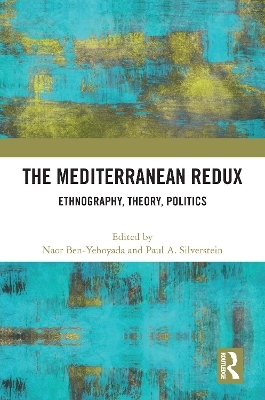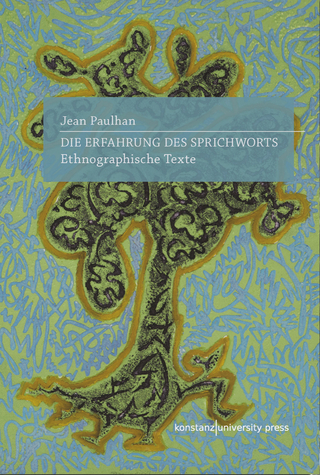
The Mediterranean Redux
Routledge (Verlag)
9781032214986 (ISBN)
This book on historical anthropology remaps the Mediterranean by reframing classical themes from early Mediterraneanist anthropology. This edited volume showcases how anthropology can contribute to an understanding of ongoing transnational dynamics and the new wave of scholarship on the Mediterranean.
The Mediterranean is back as a locus of international anxiety and academic concern. It has reemerged in the international news cycle as a space of desperate crossings and tragic endings, as the site in which a refugee crisis rivalling that of the Second World War is playing out in real time for a global viewing public. The scale of the crisis has called into question Europe’s humanitarian principles and internal political union, making the Mediterranean into a mirror for long-standing tensions between norms of universalism and demands for national security. These captivating events have further raised the tide of scholars’ interest in the Mediterranean. How should ethnographers contribute to the new wave of scholarship on the Mediterranean? To what extent does the Mediterranean offer alternative forms of political relatedness to those construed from within Europe, North Africa, and the Middle East? In this volume, we reframe classical themes from early iterations of Mediterranean anthropology to address these questions in our examinations of changing dynamics across land and sea borders, bringing ethnography back to the study of the Mediterranean, and the Mediterranean – with its Mediterraneanism – back to ethnography.
The chapters in this book were originally published as a special issue of the journal, History and Anthropology.
Naor Ben-Yehoyada is Assistant Professor of Anthropology at Columbia University, USA. He is the author of The Mediterranean Incarnate: Region Formation between Sicily and Tunisia since World War II. He writes on unauthorized migration, criminal justice, the aftermath of development, and transnational political imaginaries in the central and eastern Mediterranean. Paul Silverstein is Professor of Anthropology at Reed College, USA. He is author of Postcolonial France (2018) and Algeria in France: Transpolitics, Race and Nation (2004). He writes on identity politics, postcoloniality, and diasporic popular culture in France and North Africa.
Introduction: Remapping Mediterranean anthropology 1. The Virgin Mary of Algeria: French Mediterraneans En Miroir 2. Pontremoli’s cry: Personhood, scale, and history in the Eastern Mediterranean 3. The olive and imaginaries of the Mediterranean 4. Revisiting ‘honor’ through migrant vulnerabilities in Turkey 5. Back to the Mediterranean? Return migration, economic crisis, and contested values in Southern Spain 6. Transidioma afloat: Communication, power, and migration in the Mediterranean Sea Afterword 7. Rites of return: Back to the Mediterranean, again 8. Reclaiming the Middle Sea for Humanity
| Erscheinungsdatum | 31.01.2024 |
|---|---|
| Verlagsort | London |
| Sprache | englisch |
| Maße | 174 x 246 mm |
| Gewicht | 453 g |
| Themenwelt | Sozialwissenschaften ► Ethnologie |
| Sozialwissenschaften ► Politik / Verwaltung | |
| Sozialwissenschaften ► Soziologie | |
| ISBN-13 | 9781032214986 / 9781032214986 |
| Zustand | Neuware |
| Informationen gemäß Produktsicherheitsverordnung (GPSR) | |
| Haben Sie eine Frage zum Produkt? |
aus dem Bereich


